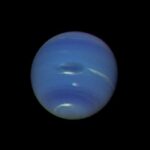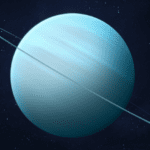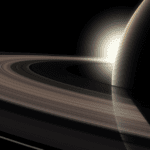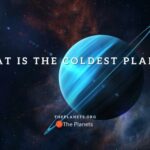As craft accelerate as they approach the Sun, determining how long would it take to get to the sun, may not be as straightforward as you would expect. And by 'get there' where exactly do we mean? We can't land on the Sun, there is no solid surface and atmospheric temperatures are extreme. So are there any missions planned? and if so, what is the expected flight time and orbital … [Read more...]
How Long Would It Take To Get To The Sun?
How long would it take to get to Neptune?
Neptune is very far away from Earth. It orbits the Sun approximately 30 times the distance from the Earth to the Sun (30 AU). It is only observable with the aid of telescopes or strong binoculars, and was not therefore visible to civilisations in antiquity. The planet has an incredibly active atmosphere and our knowledge of it is still very limited. So are there any missions … [Read more...]
How long would it take to get to Uranus?
As the second most distant planet in the solar system, just now long would it take to get to Uranus? Which missions have been there before? And do we have any plans to go back? Let's take a look. Uranus was the first planet to be discovered in the 'modern' era. Even those that have exceptional vision and the ability to see it unaided, would struggle to tell it was a planet … [Read more...]
How long would it take to get to Saturn?
There is no solid surface as such, constant storms and a toxic atmosphere. But there is much to learn from this Giant and it's abundant moons. Could one of Saturn's moons even have the ability to host some form of life? This is a planetary system worthy of much more study, but exactly how long would it take to get to Saturn? And are there any missions in progress or planned? … [Read more...]
What Is The Coldest Planet?
No matter how many layers you wore or what gear you had with you, you could not survive on those planets. The coldest planet in our solar system is Neptune. You can find out why some planets are colder than others and how the Earth's temperatures compare below. Why are Some Planets Colder Than Others? Many people learn an acronym in school that helps them … [Read more...]




